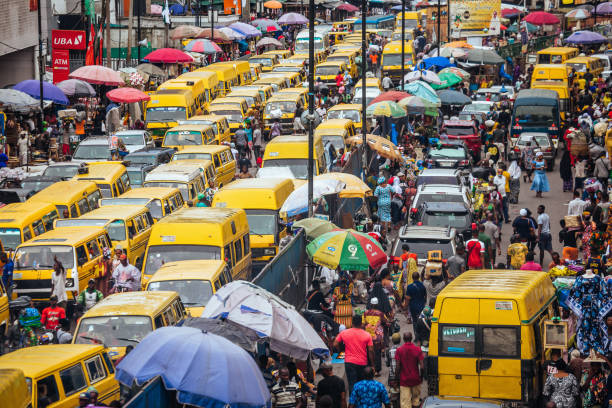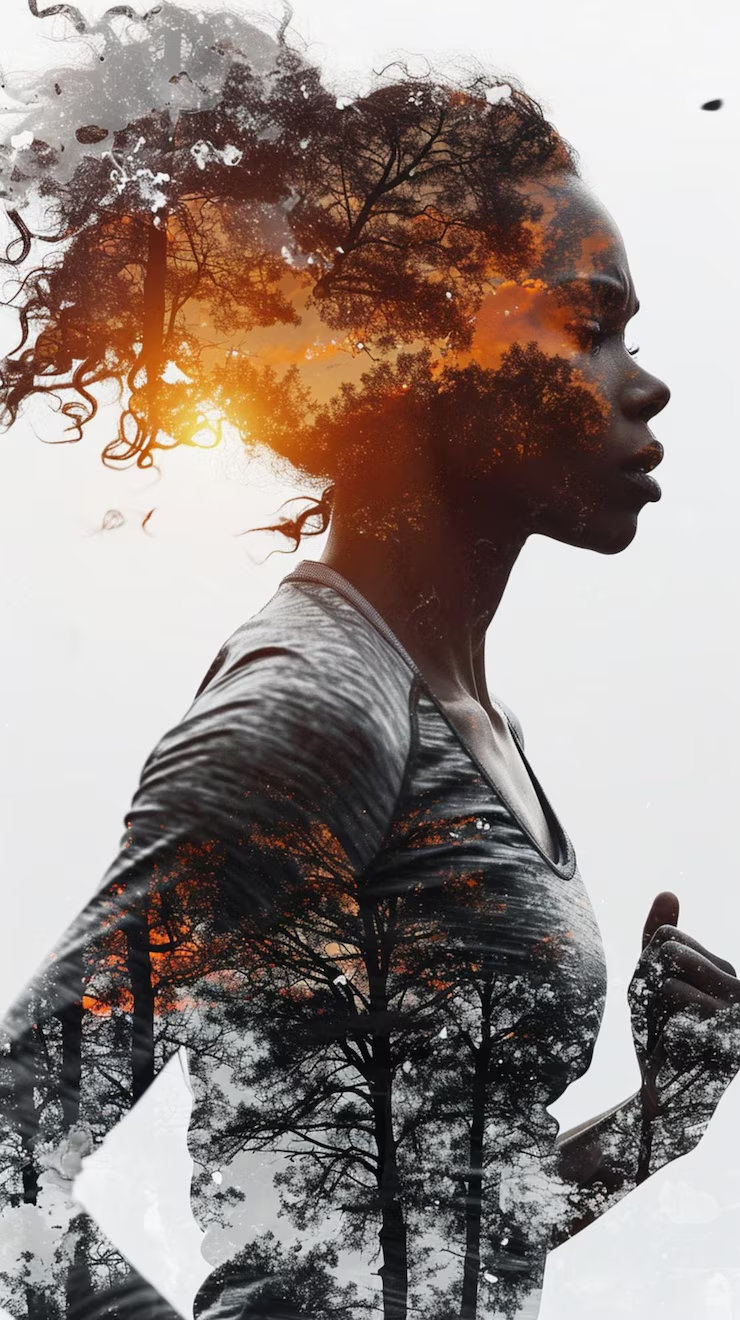Where my story began. Where my strength is rooted.

Nigeria at the Core: Where the Story Began
I was born in Lagos, Nigeria, which feels a lot like being born into the middle of a drum solo. The city is full of sound, movement, and heat. Even the traffic has rhythm. Some of my earliest memories include sitting on my mother’s lap in the back of a bustling restaurant, copying numbers from the ledgers she was updating. She had been a trained teacher, then became a Coca-Cola regional distributor, and later ran a restaurant. My father, once a boxer, worked as a mechanical engineer and later became a kindergarten school bus driver. His strength was quiet but steady. Together they raised nine of us, which meant that even simple things like brushing your teeth or finding your shoes often became a group activity.
Growing up in that kind of family taught me how to lead from the middle. It showed me how to listen beyond the words and how to negotiate from a place of love. Being Yoruba grounded me in something deep. I was raised on proverbs and prayers, both delivered with conviction. Faith had rhythm. Respect carried weight. Storytelling was more than entertainment. It was a tool and a way of shaping vision. Those cultural anchors shaped my view of the world long before I ever studied frameworks or designed systems.
The way I lead today, with strategy, intuition, and collaboration, is a direct reflection of that foundation. I lead the way I was raised — with care, with flexibility, and with a strong belief that people, no matter how chaotic the moment may seem, are always worth building with.
Today, I believe those of us working in strategy, research and technology have a responsibility to keep the bigger picture in mind. Not as a checklist to complete, but as a core principle to live by. We are not just designing tools. We are helping shape the future.
Strategy and Strength: The Nigerian Way
Lagos was my first classroom for strategy. If you can move through a Lagos market without being overcharged, squeezed by a danfo, or thrown off by a sudden fuel scarcity, then you can handle almost any boardroom. Nigerian life teaches strategy through motion. We don’t wait for perfect conditions. We act. We build. We adjust.
My parents modeled reinvention long before it became trendy. Whether it was finding a way to fix a cracked pot or figuring out how to seat nine people when there were only six chairs, I learned logistics before I had a name for it. Our communities formed food cooperatives before food banks were common, and thrift circles before digital lending apps. Nigeria has always been a place where creativity and resilience show up as everyday solutions.
That foundation gives me an advantage in my work with nonprofits. I understand complexity. I know how to stay ready for shifts. I work with what's already in the room and see possibility where others may see limitation.


Diaspora Vision: Thinking Global, Staying Rooted
Holding space as both a Nigerian and a global professional means I speak two emotional languages. One language flows from ancestral wisdom and relationship. The other runs on calendars, KPIs, and delivery cycles. I have learned how to bring both into the same room. My education in Nigeria — first in International Relations and History, then in International Affairs and Public Administration — taught me how to carry multiple truths without dropping any of them. That training prepared me to lead across continents with clarity and cultural intelligence.
When I show up globally as a Nigerian, I do so fully. I am not an exception. I am an example. My grandfather helped establish the first teaching hospital in our state. Today, I work to build healing structures too, through research, systems, and data. Our work looks different, but our mission is deeply connected.
I stay rooted in Nigeria through board service, mentorship, and co-creating systems that meet local needs. Nigeria continues to call, and I continue to answer.

Systems That Serve: A Future for Nigeria
If I could reimagine one part of our national infrastructure, I would begin with public data. It might not grab headlines, but it holds the key to everything else. We cannot build what we cannot track. My doctoral research focuses on how technologies like blockchain and artificial intelligence can make social impact more visible, verifiable, and grounded in community ownership. Imagine tracking nonprofit funds as easily as a food order. Imagine building trust through clarity.
Many Nigerian nonprofits struggle with access — to tools, to funding, to visibility. The solution is not to keep importing systems that were never built with us in mind. What we need are technologies that reflect our context. Systems that are clear, accessible, and built with the community in mind.
We do not need heroes to save us. We need infrastructure that supports us. The youth are ready. The creativity is already here. What we need now are systems designed to hold our potential.
Legacy and Impact: Giving Back With Purpose
For me, giving back is not an activity I schedule. It’s a rhythm I live. I serve on boards, mentor women, and contribute where I can, especially in areas that matter deeply to me. Education access, advocacy for girls, climate justice, civic participation, and survivor support are not trends I follow. They are personal commitments.
What I hope young Nigerian changemakers remember is this — you don’t need to be loud to be powerful, and you don’t need to be perfect to create real change. What you do need is consistency. Stay rooted, and be bold enough to begin.
I was born in Lagos. I was shaped by Yoruba wisdom. I have earned global recognition, but my heart remains at home. That is the story I carry. That is the legacy I am building.
You don’t have to wait for someone else to validate your worth. You can show it. One strategy, one story, and one system at a time.
If I had to leave one message, it would come from a Nigerian proverb: “However far the stream flows, it never forgets its source.”
